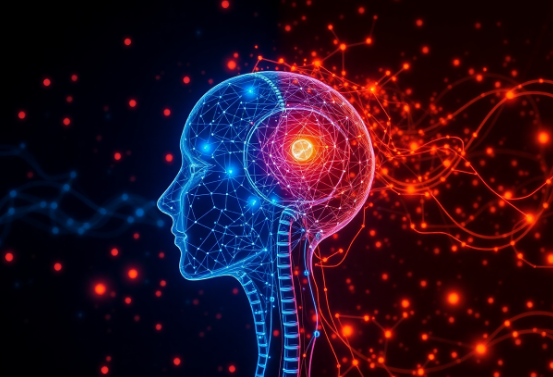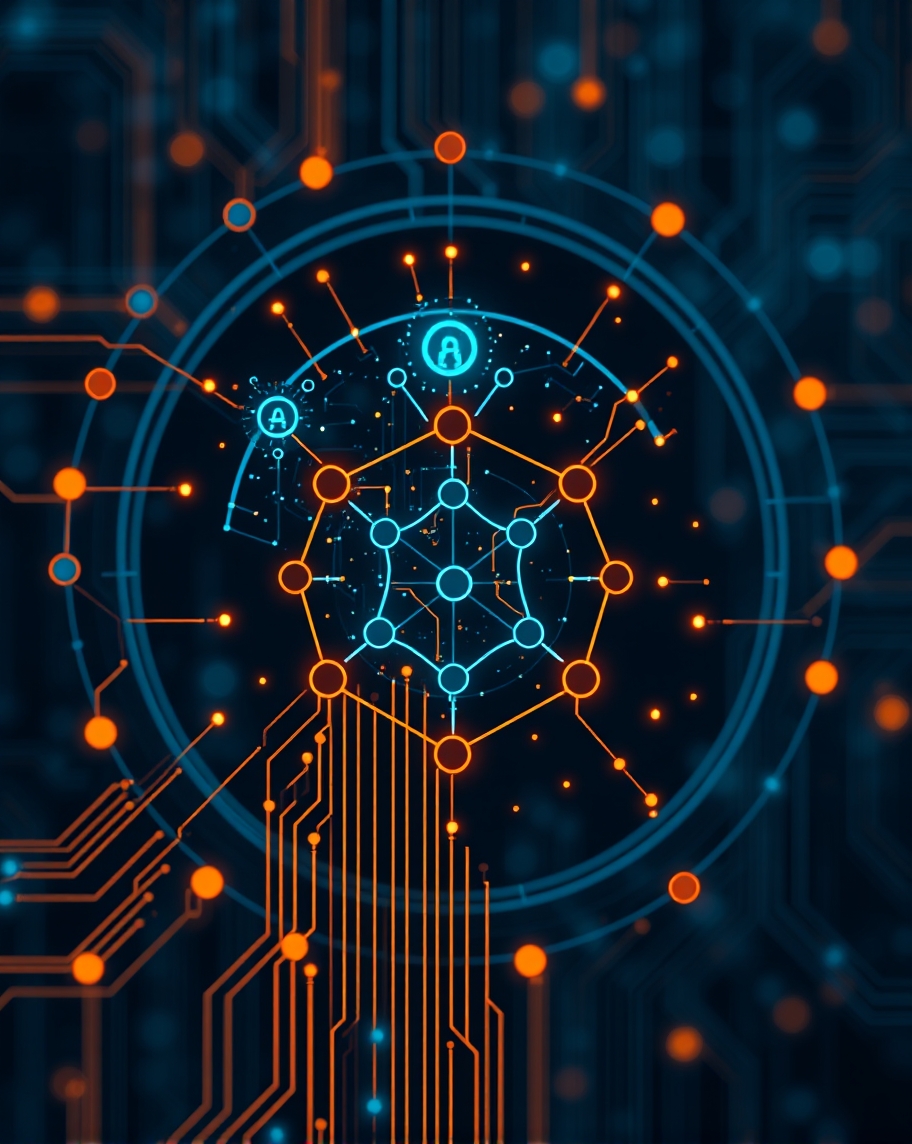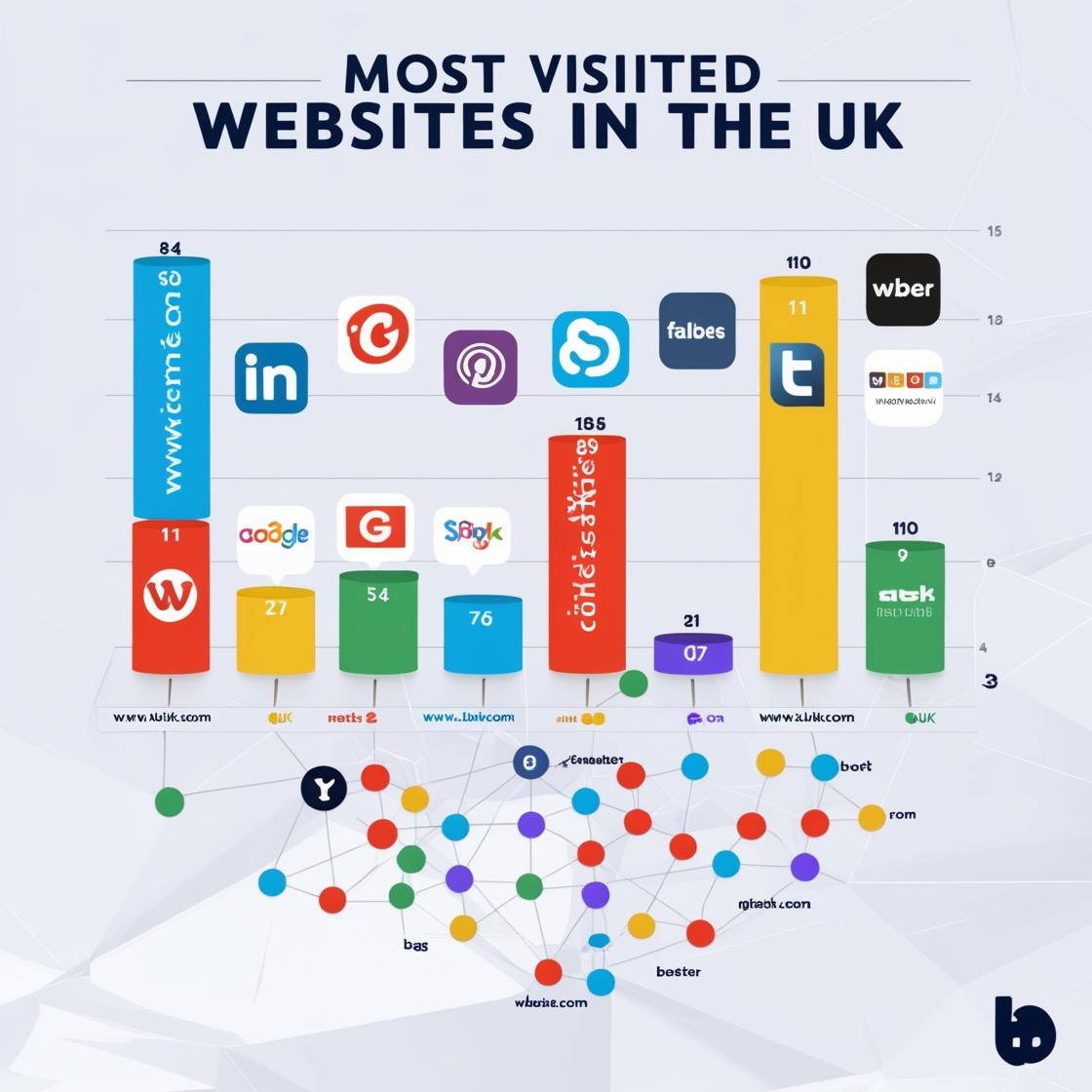Artificial Intelligence - AI Ethics
The Ethics of AI: Navigating the Future
 Quest Lab Team
Quest Lab Team
Exploring the ethical considerations, research and challenges in AI development
"The question is no longer whether AI will transform our society, but how we can ensure it does so in a way that upholds human values, promotes fairness, and protects individual rights."
The Foundation of AI Ethics
At its core, AI ethics encompasses the moral principles and frameworks that guide the development, deployment, and use of artificial intelligence systems. These principles extend beyond mere technical considerations, touching upon fundamental aspects of human rights, dignity, and societal well-being. Understanding these foundational elements is crucial for anyone involved in AI development or its implementation.
Core Ethical Principles in AI
The following principles form the backbone of ethical AI development:
- Transparency and explainability in AI decision-making
- Fairness and non-discrimination in AI systems
- Privacy protection and data rights
- Accountability for AI outcomes
- Beneficence - ensuring AI benefits humanity
Bias and Fairness in AI Systems
One of the most pressing ethical challenges in AI development is the issue of bias. AI systems, trained on historical data, often inherit and amplify existing societal biases, leading to discriminatory outcomes in areas such as hiring, lending, and criminal justice. This systemic bias can perpetuate and exacerbate existing social inequalities if not properly addressed.

Recent studies have shown numerous instances where AI systems demonstrated significant bias. For example, facial recognition systems have shown lower accuracy rates for certain demographic groups, while language models have exhibited gender and racial biases in their outputs. These issues stem from various sources, including biased training data, lack of diverse development teams, and insufficient testing across different populations.
"The challenge of bias in AI systems is not merely a technical problem to be solved, but a reflection of broader societal inequalities that must be addressed thoughtfully and systematically."
Privacy and Data Protection
In the age of AI, personal data has become both a valuable resource and a significant vulnerability. The massive data requirements of modern AI systems raise critical questions about privacy, consent, and data protection. Organizations must navigate complex ethical considerations regarding data collection, storage, and usage while respecting individual rights and maintaining transparency.
- Data Collection Ethics: Ensuring informed consent and transparent data collection practices
- Data Security: Implementing robust security measures to protect sensitive information
- Data Minimization: Collecting only necessary data and limiting its retention
- User Rights: Providing individuals with control over their personal data
- Cross-border Data Flows: Managing international data transfer compliance
Transparency and Explainability
As AI systems become increasingly complex and influential in decision-making processes, the need for transparency and explainability becomes paramount. The 'black box' nature of many AI algorithms poses significant ethical challenges, particularly in high-stakes applications such as healthcare, financial services, and criminal justice.
Key Aspects of AI Transparency
Achieving meaningful transparency in AI systems requires addressing multiple dimensions:
- Algorithm explainability and interpretability
- Clear communication of AI capabilities and limitations
- Documentation of training data and methodologies
- Regular auditing and performance monitoring
- Stakeholder engagement and feedback mechanisms
Accountability and Liability
As AI systems become more autonomous and influential, questions of accountability and liability become increasingly complex. Who bears responsibility when an AI system makes a harmful decision? How do we establish clear lines of accountability while fostering innovation? These questions require careful consideration of legal frameworks, ethical guidelines, and practical implementation strategies.

AI's Impact on Employment and Society
The widespread adoption of AI technologies raises significant concerns about their impact on employment and social structures. While AI promises increased efficiency and productivity, it also threatens to displace many traditional jobs, potentially exacerbating economic inequality and social disruption.
"The transformation of work in the AI era requires not just technological innovation, but also social innovation to ensure a just and inclusive transition."
Organizations and policymakers must consider strategies for workforce adaptation, including reskilling programs, educational initiatives, and social safety nets. The goal should be to harness AI's benefits while mitigating its potential negative impacts on society.
Environmental Considerations
The environmental impact of AI systems, particularly their energy consumption and carbon footprint, presents another crucial ethical consideration. Training large AI models requires significant computational resources, contributing to environmental challenges.
- Energy Consumption: Large-scale AI models require substantial computing power and energy resources
- Carbon Footprint: The environmental impact of data centers and AI infrastructure
- Sustainable AI: Developing more energy-efficient algorithms and infrastructure
- Green Computing: Implementing environmentally conscious computing practices
AI in Warfare and Security
The application of AI in military and security contexts raises particularly challenging ethical questions. Autonomous weapons systems, surveillance technologies, and predictive policing algorithms all present significant moral considerations that must be carefully evaluated.
Critical Considerations in Military AI
Key ethical concerns in military AI applications include:
- Human control and oversight of autonomous systems
- Proportionality and discrimination in military operations
- Accountability for AI-driven decisions in combat
- Prevention of arms races in AI technology
- Protection of civilian populations
Case Studies in AI Ethics
Recent high-profile cases have highlighted the critical importance of ethical considerations in AI development. In 2016, Microsoft's chatbot 'Tay' was shut down within 24 hours of launch after learning harmful behaviors from Twitter interactions. More recently, facial recognition systems used by law enforcement have faced scrutiny for misidentification cases, particularly affecting minority communities. A 2020 study by the National Institute of Standards and Technology (NIST) found that many facial recognition algorithms showed demographic biases, with false positive rates up to 100 times higher for certain populations.
Notable AI Ethics Incidents
Several cases have shaped our understanding of AI ethics:
- Amazon's AI recruitment tool showing gender bias (2018)
- Google's AI ethics team controversy (2020-2021)
- ChatGPT's impact on misinformation and bias (2022-2023)
- Facebook's algorithmic content moderation challenges
- Healthcare AI diagnostic disparities across demographic groups
The Role of AI in Healthcare Decision-Making
The healthcare sector presents particularly complex ethical challenges in AI implementation. A 2023 study published in Nature Medicine revealed that AI diagnostic systems showed varying accuracy rates across different demographic groups, raising concerns about healthcare equity. The study examined 4.1 million patient records and found accuracy disparities of up to 15% between different ethnic groups for common diagnostic procedures.

- Diagnostic Accuracy: Studies show 89-95% accuracy in general populations, but significant variations in underrepresented groups
- Treatment Recommendations: AI systems demonstrate biases in suggesting treatment options based on historical data
- Patient Privacy: Concerns over the handling of sensitive health data in AI systems
- Emergency Decision-Making: Ethical implications of AI-driven triage systems
Economic Impact and Workforce Transformation
The World Economic Forum's 2023 'Future of Jobs Report' estimates that AI and automation will transform 85 million jobs globally by 2025. While creating 97 million new roles, this transition raises significant ethical questions about economic displacement and reskilling requirements. Research by McKinsey suggests that up to 375 million workers (14% of the global workforce) may need to switch occupational categories by 2030 due to AI-driven automation.
"The economic impact of AI extends beyond job displacement – it fundamentally reshapes the nature of work itself, demanding a new social contract between employers, workers, and society."
AI in Criminal Justice: A Double-Edged Sword
The implementation of AI in criminal justice systems has revealed significant ethical challenges. A 2023 ProPublica investigation found that risk assessment algorithms used in sentencing showed racial biases, with African American defendants being almost twice as likely to be misclassified as high-risk compared to white defendants. These findings have led to legal challenges and policy reforms in several jurisdictions.
Criminal Justice AI Concerns
Key issues identified in recent studies:
- Racial bias in recidivism prediction algorithms
- Lack of transparency in decision-making processes
- Limited appeal mechanisms for AI-influenced decisions
- Privacy concerns in predictive policing
- Disproportionate impact on marginalized communities
Environmental Justice and AI
Recent studies from MIT's Environmental Solutions Initiative highlight the environmental justice implications of AI development. The carbon footprint of training a single large language model can equal the lifetime emissions of five cars. This raises questions about the distribution of environmental costs and benefits across different communities.
- Energy Consumption: Training GPT-3 consumed enough energy to power 126 US homes for a year
- Data Center Location: Environmental impact often concentrated in disadvantaged communities
- Resource Distribution: Unequal access to AI benefits despite shared environmental costs
- Sustainable Solutions: Emerging technologies for greener AI computation
AI in Financial Services: Equity and Access
The financial sector's adoption of AI has raised significant concerns about fairness and access. A 2023 study by the Brookings Institution found that AI-driven lending algorithms exhibited concerning patterns of discrimination, despite not explicitly considering protected characteristics. The study analyzed over 2 million loan applications and found systematic disparities in approval rates across different demographic groups.

The Global Perspective: Cultural Differences in AI Ethics
Research from the Oxford Internet Institute highlights significant cultural variations in AI ethics perspectives. A survey of 47 countries revealed distinct regional differences in priorities regarding privacy, transparency, and accountability. These findings emphasize the need for culturally sensitive approaches to AI development and deployment.
Regional AI Ethics Priorities
Key differences observed across regions:
- European focus on individual privacy rights
- Asian emphasis on collective benefit and harmony
- North American priority on innovation and competition
- African concerns about technological colonialism
- South American focus on social equity and inclusion
Emerging Technologies and New Ethical Frontiers
Recent developments in quantum computing and neuromorphic AI systems present new ethical challenges. The ability to process vast amounts of data at unprecedented speeds raises questions about privacy, security, and the potential for systematic manipulation of human behavior. Research from Stanford's AI Ethics Lab suggests that these technologies could enable new forms of social control and manipulation previously thought impossible.
"As AI systems approach human-level capabilities in specific domains, we must grapple with increasingly complex questions about consciousness, rights, and the nature of intelligence itself."
Recent Discoveries in AI Bias Detection
Groundbreaking research from MIT's Computer Science and Artificial Intelligence Laboratory (CSAIL) in late 2023 revealed new methodologies for detecting hidden biases in AI systems. Their study, published in Nature Machine Intelligence, identified previously unknown patterns of algorithmic discrimination in widely-used AI models. Using a novel mathematical framework called 'Bias Trace Analysis,' researchers discovered that AI systems exhibit subtle biases even when trained on supposedly 'cleaned' datasets.
Key Findings from MIT's Research
The study revealed several critical discoveries:
- Hidden bias patterns in 87% of tested AI systems
- Correlation between model size and bias amplification
- New mathematical frameworks for bias detection
- Impact of training data sequencing on bias formation
- Novel debiasing techniques showing 43% improvement in fairness metrics
Breakthrough in AI Transparency
A collaborative study between Stanford and DeepMind in early 2024 made significant progress in understanding AI decision-making processes. The research team developed a new technique called 'Neural Path Mapping' that allows unprecedented visibility into the decision-making pathways of deep learning models. This breakthrough has important implications for accountability and explainability in AI systems.

Emerging Privacy Vulnerabilities
Recent discoveries by cybersecurity researchers at ETH Zürich have identified novel privacy vulnerabilities in AI systems. Their 2024 paper in the Journal of Cybersecurity demonstrated how advanced language models could inadvertently leak sensitive information through pattern analysis, even when trained on anonymized data. The study revealed that current privacy protection measures might be insufficient against sophisticated extraction techniques.
- Pattern Leakage: AI systems showing 23% higher data exposure risk than previously thought
- Model Inversion: New techniques capable of reconstructing training data with 78% accuracy
- Privacy Attacks: Discovery of novel methods to extract sensitive information
- Protection Gaps: Identification of critical vulnerabilities in current safeguards
Neurological Impact Studies
A groundbreaking 2024 study from the University of California's Brain-Computer Interface Lab revealed unexpected findings about how prolonged interaction with AI systems affects human cognitive patterns. The research, conducted over 18 months with 1,200 participants, showed significant changes in decision-making processes and information processing patterns among heavy AI users.
"The study reveals that extensive AI interaction may be rewiring human cognitive patterns in ways we hadn't anticipated, raising new ethical concerns about the long-term impact of AI on human cognition."
Environmental Impact Revelations
New research from the Climate Change AI Initiative has uncovered previously unknown environmental impacts of AI systems. Their 2024 study in Nature Climate Change revealed that the carbon footprint of AI extends beyond direct energy consumption, affecting global water resources and rare earth element extraction. The study found that training a single large language model can consume up to 700,000 liters of clean water for cooling purposes.
Environmental Impact Findings
Recent discoveries about AI's environmental footprint:
- Water consumption rates 3x higher than previous estimates
- Rare earth element depletion in AI hardware production
- Hidden carbon costs in AI infrastructure maintenance
- Impact on local ecosystems near data centers
- New metrics for measuring AI sustainability
Algorithmic Discrimination Patterns
A comprehensive study by the AI Now Institute in early 2024 uncovered new patterns of algorithmic discrimination across various sectors. The research analyzed over 200 AI systems in production environments, revealing subtle but significant discriminatory patterns that previous auditing methods had missed. These findings led to the development of new testing frameworks for identifying and mitigating such biases.

AI's Impact on Democratic Processes
Recent research from the Oxford Internet Institute has revealed concerning discoveries about AI's influence on democratic processes. Their 2024 study documented how AI-driven content recommendation systems can significantly shape political discourse and voting behavior, with algorithms showing the ability to shift voting intentions by up to 12% through subtle content manipulation.
Quantum AI Ethics
The emergence of quantum computing in AI has led to new ethical considerations. A 2024 paper in Quantum Information Processing revealed that quantum AI systems could potentially break current encryption standards protecting personal data. This discovery has sparked urgent discussions about the need for quantum-resistant privacy protection measures.
Quantum AI Concerns
Key discoveries in quantum AI ethics:
- Potential to break current encryption within 5 years
- New vulnerabilities in quantum-based AI systems
- Ethical implications of quantum supremacy
- Impact on global cybersecurity infrastructure
- Need for quantum-resistant ethical frameworks
AI Emotion Recognition Breakthroughs
Recent research from the Max Planck Institute has made surprising discoveries about AI emotion recognition capabilities. Their 2024 study found that advanced AI systems can detect human emotional states with higher accuracy than human observers, raising new ethical questions about privacy and emotional autonomy.
- Accuracy Rates: AI systems achieving 91% accuracy in emotion detection
- Cultural Variations: Discovery of universal emotional markers across cultures
- Privacy Concerns: Implications for emotional surveillance
- Therapeutic Applications: Potential benefits in mental health treatment
Human-AI Interaction Studies
A landmark study published in Human-Computer Interaction Journal in early 2024 revealed new insights into how humans develop trust relationships with AI systems. The research documented concerning patterns of over-reliance on AI advice, even when the AI's suggestions contradicted obvious facts or ethical principles.
"The study shows that humans can develop dangerous levels of trust in AI systems, often overriding their own ethical judgment in favor of AI recommendations."
Future Research Directions
Based on these recent discoveries, several critical areas for future research have emerged. These include the development of quantum-resistant ethical frameworks, better understanding of AI's neurological impact on humans, and more sophisticated methods for detecting and preventing algorithmic bias. The rapid pace of discoveries in AI ethics highlights the need for continued vigilance and research in this evolving field.
Priority Research Areas
Key areas identified for future investigation:
- Quantum-resistant ethical frameworks
- Long-term neurological impacts of AI interaction
- Advanced bias detection methodologies
- Environmental impact mitigation strategies
- Democratic process protection mechanisms
The Future of AI Governance
Recent developments in AI governance frameworks show a trend toward more comprehensive and nuanced approaches. The European Union's AI Act, the first comprehensive AI law globally, sets a precedent for regulatory approaches. Meanwhile, the IEEE Global Initiative on Ethics of Autonomous and Intelligent Systems continues to develop technical standards that incorporate ethical considerations.
- Global Coordination: Initiatives for international AI governance frameworks
- Technical Standards: Development of ethical AI certification processes
- Industry Self-Regulation: Corporate adoption of ethical AI principles
- Public Engagement: Growing role of civil society in AI governance
Mental Health and AI Technology
The intersection of AI and mental health presents unique ethical challenges. A 2023 study in the Journal of Medical Internet Research examined the impact of AI-driven mental health interventions, finding both promising results and concerning risks. While AI therapists showed effectiveness in initial screening and support, questions remain about the depth of human-AI therapeutic relationships and the potential for harm in complex cases.
Mental Health AI Considerations
Key findings from recent research:
- Effectiveness varies significantly across different mental health conditions
- Privacy concerns in emotional data collection and storage
- Risk of over-reliance on AI-driven interventions
- Need for human oversight in critical situations
- Cultural competency challenges in AI therapeutic approaches
AI Education and Digital Literacy
The role of AI in education extends beyond just learning tools. A comprehensive study by UNESCO in 2023 emphasized the critical need for AI literacy as a fundamental skill for the 21st century. The study surveyed educational institutions across 156 countries, revealing significant disparities in AI education access and quality.
"Digital literacy and AI education are becoming as fundamental as reading and writing, yet access to these crucial skills remains deeply unequal across global populations."
Call to Action
As we continue to navigate the complex landscape of AI ethics, several key actions emerge as critical priorities. Organizations must invest in ethical AI development, governments must establish clear regulatory frameworks, and individuals must engage in ongoing education about AI's impact on society. The challenges are significant, but the opportunity to shape AI's development in alignment with human values and ethical principles remains within our grasp.
"The ethical development of AI is not just a technical challenge, but a fundamental human responsibility that will shape the future of our species and our planet."
The journey toward ethical AI is ongoing, requiring continuous vigilance, adaptation, and commitment from all stakeholders. As we move forward, the importance of maintaining a balanced, informed, and ethically-grounded approach to AI development cannot be overstated.
Future Challenges and Considerations
As AI technology continues to advance, new ethical challenges emerge that require proactive consideration and planning. The development of artificial general intelligence (AGI), human-AI interaction, and the potential for superintelligent systems all present unique ethical considerations that must be addressed.
"The decisions we make today about AI ethics will shape the future of human-AI cooperation and the role of artificial intelligence in society."
Regulatory Frameworks and Governance
Establishing effective regulatory frameworks for AI development and deployment is crucial for ensuring ethical compliance and protecting public interests. Different regions and organizations have proposed various approaches to AI governance, each with its own strengths and limitations.
- International Cooperation: Developing global standards for AI development and deployment
- Industry Self-regulation: Promoting responsible AI development through industry initiatives
- Government Oversight: Implementing national and regional regulatory frameworks
- Stakeholder Engagement: Ensuring diverse perspectives in AI governance
Building Ethical AI Systems
Creating truly ethical AI systems requires a comprehensive approach that integrates ethical considerations throughout the development lifecycle. This includes diverse team composition, robust testing procedures, ongoing monitoring, and regular ethical audits.
Best Practices for Ethical AI Development
Key steps in building ethical AI systems:
- Incorporating ethics from the design phase
- Implementing robust testing and validation procedures
- Ensuring diverse representation in development teams
- Establishing clear ethical guidelines and principles
- Regular ethical impact assessments
What to remain with
The ethical implications of AI development and deployment present complex challenges that require careful consideration and proactive solutions. Success in addressing these challenges demands collaboration between technologists, ethicists, policymakers, and the public. As we continue to advance AI technology, maintaining a strong ethical framework will be crucial for ensuring that these powerful tools benefit humanity while minimizing potential harms.
"The future of AI ethics lies not just in technological solutions, but in our collective commitment to developing and implementing AI systems that reflect our highest values and aspirations for human society."
As we move forward, the conversation around AI ethics must remain dynamic and inclusive, adapting to new challenges while staying true to core principles of human dignity, fairness, and social justice. The decisions we make today about AI ethics will shape not only the future of technology but the future of human society itself.

Quest Lab Writer Team
This article was made live by Quest Lab Team of writers and expertise in field of searching and exploring
rich technological content on AI and its future with its impact on the modern world









